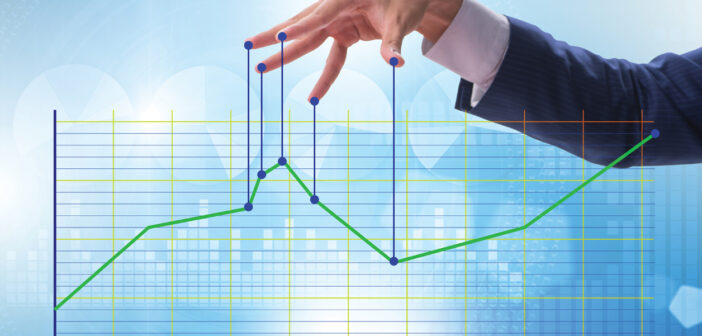A few weeks ago, the Harris campaign proposed using price controls to address the high cost of groceries. The cost of groceries is indeed 25% higher than at the start of the pandemic. Addressing this through price controls would be counterproductive and damaging.
The price of groceries, like everything else, is set by supply-and-demand. COVID restrictions and supply chain disruptions reduced the supply of groceries. Excessively expansionary monetary policy increased the demand for groceries (like it did for everything else). The net result is higher grocery prices. These prices “clear the market,” meaning there is not a shortage or surplus of groceries. The higher prices are frustrating; but if you go to the store, food is widely available.
The cause of both the decrease in supply and increase in demand is government policy. Suppose rather than addressing the policies that resulted in inflation, the government levies a price control which makes it illegal for grocery prices to rise. The result is that the market will not clear and widespread shortages will persist.
The reasons are straightforward. Inflation means that food producer costs are rising. If they cannot pass this onto consumers via higher prices, many will scale back production or go out-of-business. Prices held artificially low will result in consumers buying more groceries than they otherwise would. The lower grocery prices might feel good, but shelves would be empty.
“Price controls would make buying groceries like buying concert tickets.”
An example of this is the Soviet Union, where markets did not exist and prices, such as they did exist, bore no relationship to supply-and-demand. Consequently, consumer goods were largely unavailable. Buying a loaf of bread or gallon of milk often meant waiting in line for hours (only to find that no more was available for purchase once you reached the front of it) or participating in the black market.
It is a certainty that if prices were held artificially low in the U.S. economy, black markets would pop-up with prices that reflect supply-and-demand. Resale markets for concert tickets are an example. The face value of a ticket to a Taylor Swift concert ticket is much lower than the true market value. If you are lucky enough to snag a ticket online by waiting in a virtual line, then you win. Otherwise, you go without or try to purchase one on a resale site. The problem with purchasing in black markets like this is that fraud and counterfeit goods are much more likely with little-to-no recourse for the consumer. Price controls would make buying groceries like buying concert tickets.
Irresponsible economic policy follows four steps. Step 1: print a bunch of money to pay for government spending. Step 2: inflation results. Step 3: fight inflation by making it illegal for prices to rise (meaning price controls). Step 4: widespread shortages and black markets. The U.S. made it to step two. Making it all the way through step four, as many countries have, results in a massive reduction in the standard of living. Let’s hope this does not happen.














